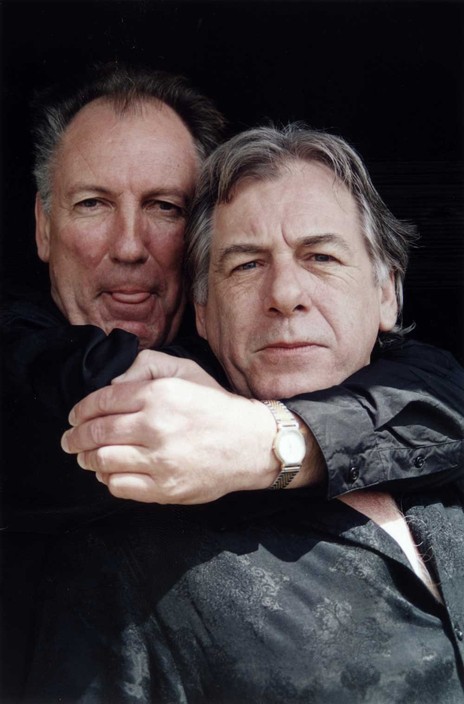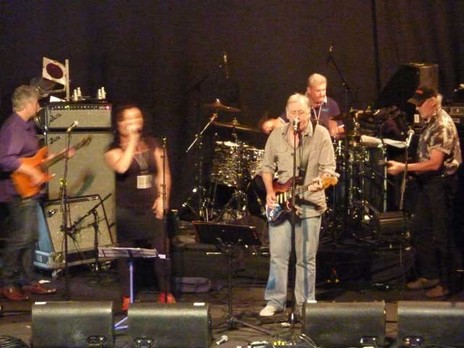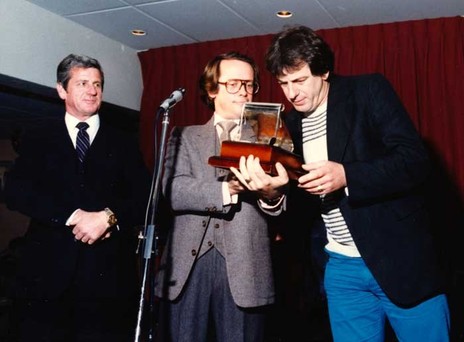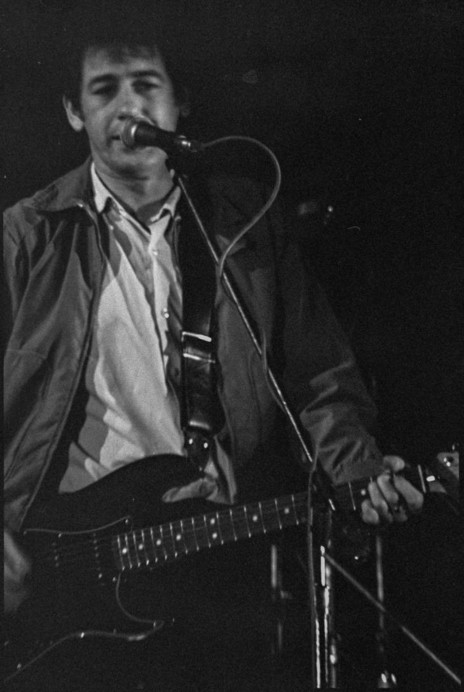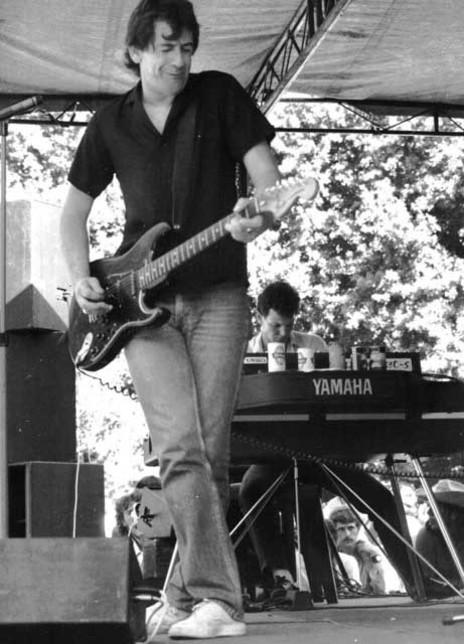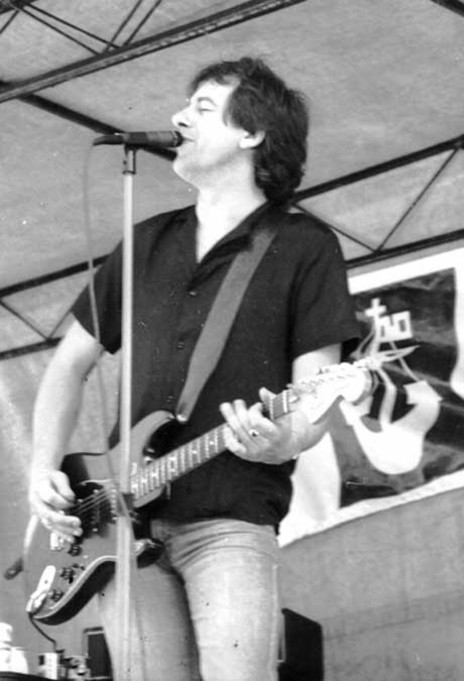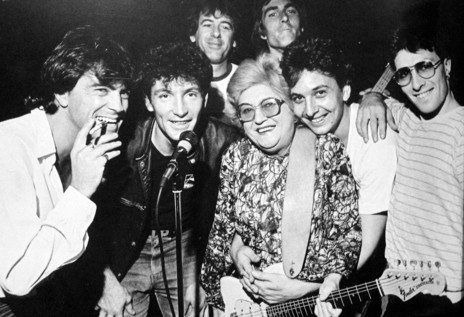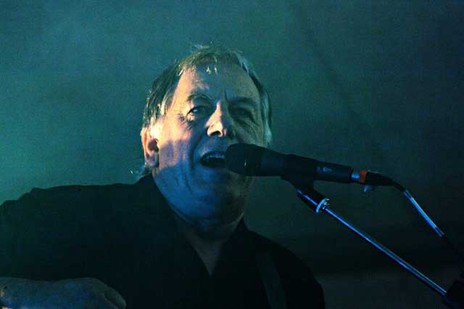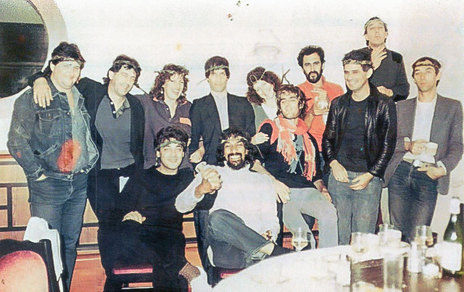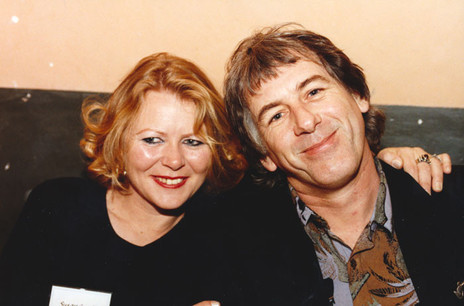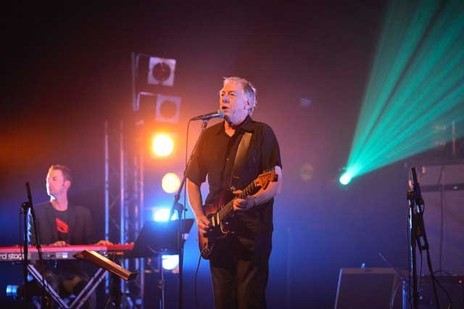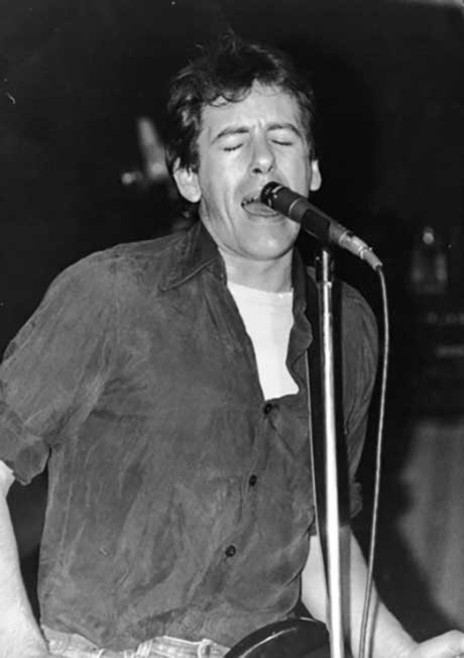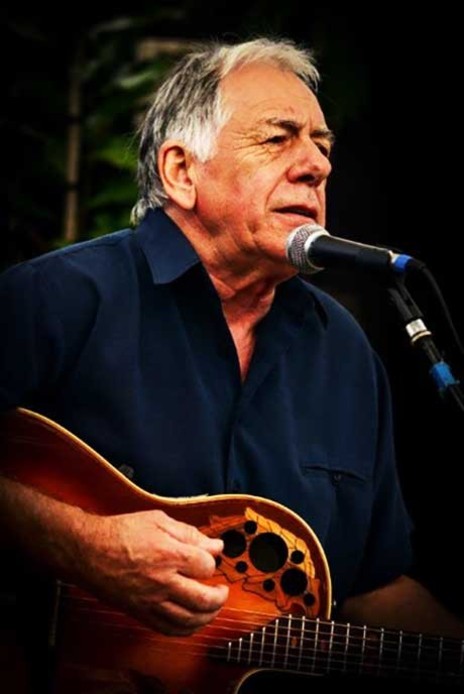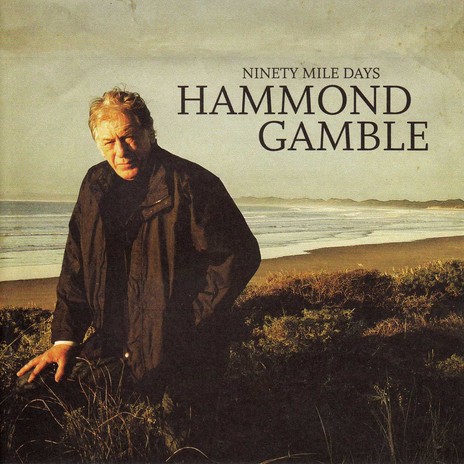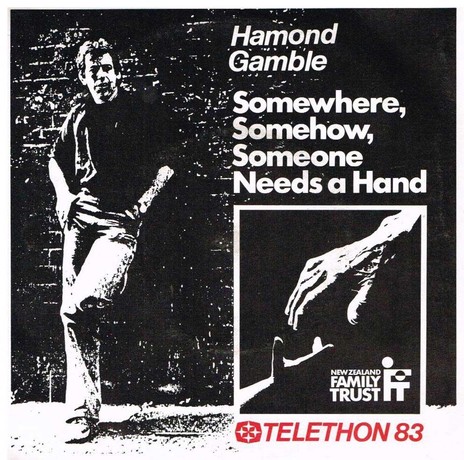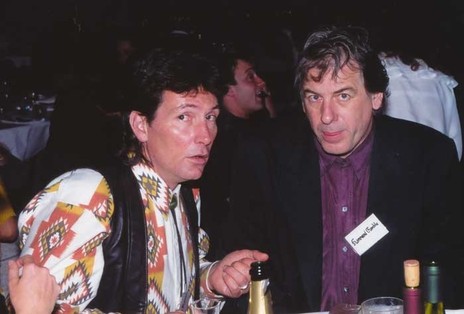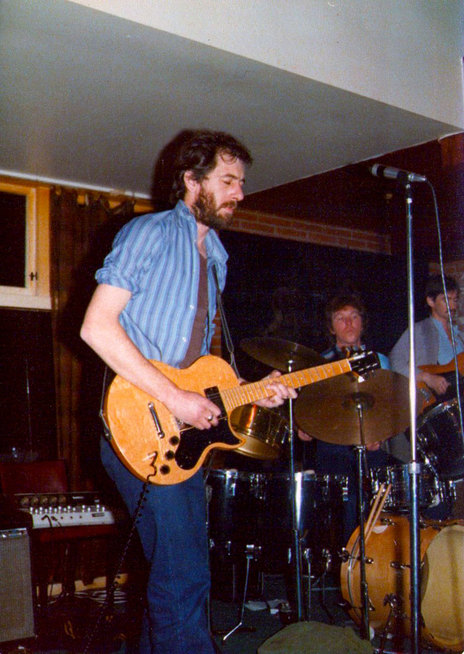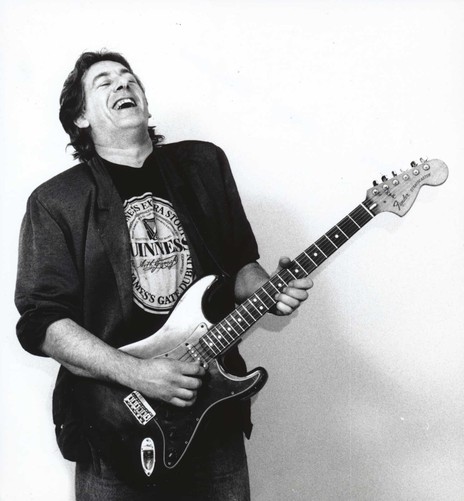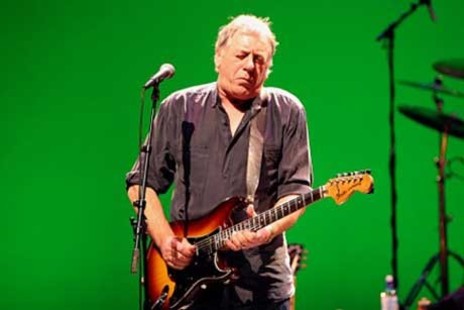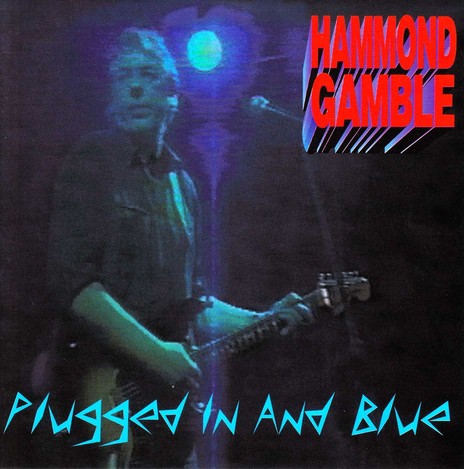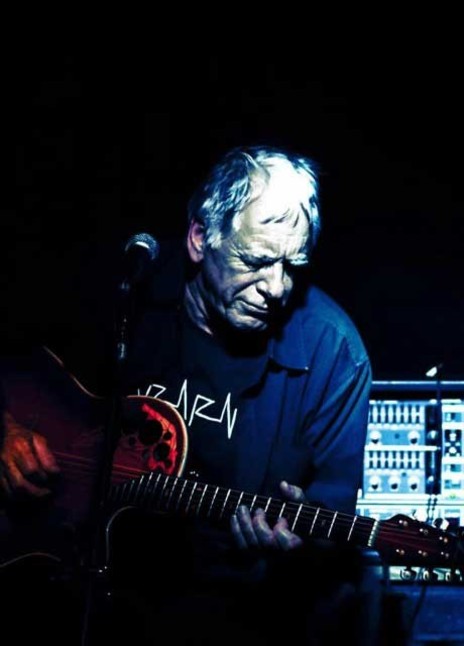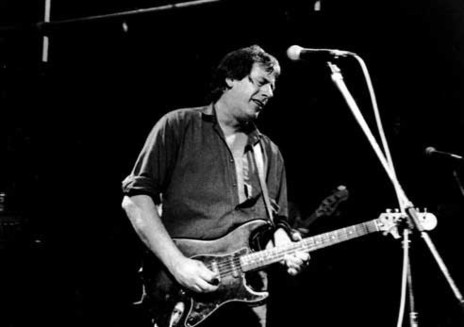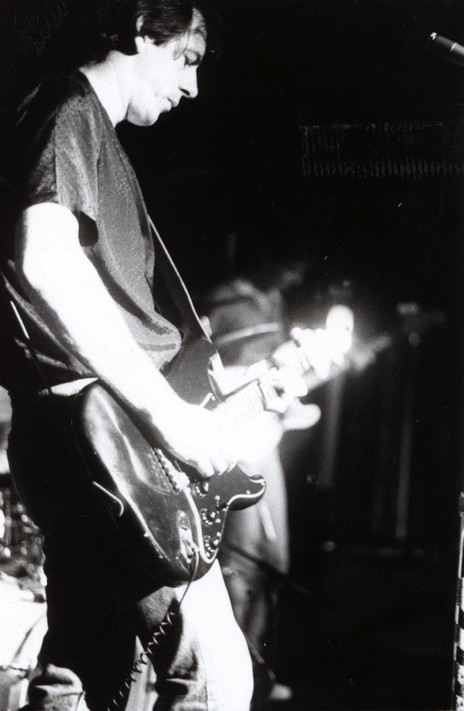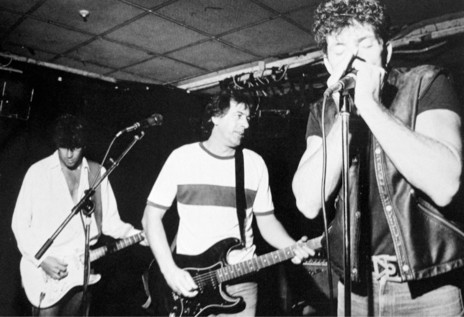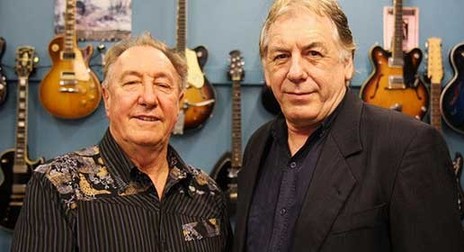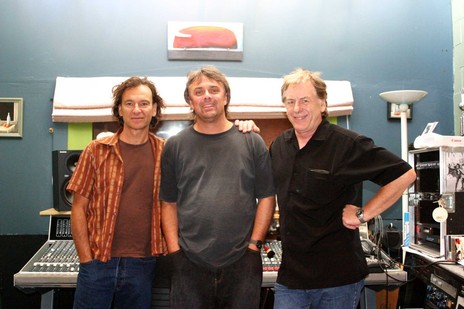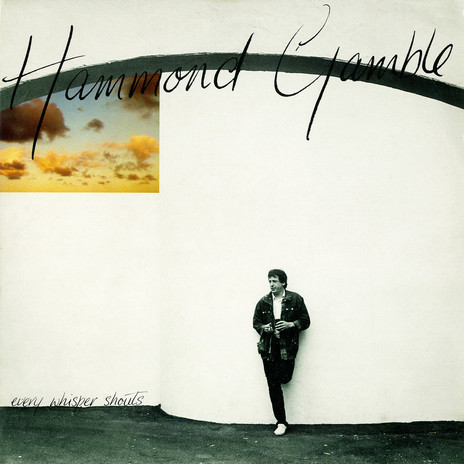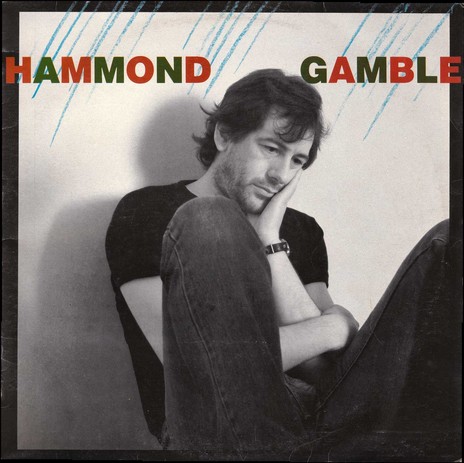Following his departure, the band had a giggle at Hammond’s expense. He has always liked a beer, but the clichéd sex drugs and rock ’n’ roll lifestyle has never featured – no drugs, no groupies, no wild behaviour. The description “rock ’n’ roll animal” has never applied to Hammond Gamble.
He was born 25 September 1951 in the Lancashire village of Bolton-Le-Sands to an English mother and New Zealand father; in 1963 the family arrived in New Zealand, settling in his dad’s Whangarei hometown. Hammond’s father worked at the Portland Cement Works and it was at the Portland Youth Club that Hammond began singing with the Pukeroa family group. “Country music was big,” Hammond remembers, “but I sang Beatles songs like ‘A Hard Day’s Night’ and ‘I Should Have Known Better’.”
Although he possessed a guitar, Gamble didn’t play it with the Pukeroa family (“I kept it quiet because I thought I might be completely useless”) but endless practising in his bedroom brought a proficiency that couldn’t be contained. Leaving school in 1967, he joined the workforce as a shipping clerk. His work hours, dictated by shipping schedules, seven days a week, precluded a full-time band but, having purchased a Fender Telecaster and Twin Reverb amp, he began playing with local musicians like John Leigh Calder and Peter Grattan. It was still mostly current pop hits but Gamble’s personal record collection started to incorporate the blues.
“It was mostly John Mayall and Eric Clapton at first,” he remembers, “and I have to say I didn’t really like a lot of the black music at first – y’know, those acts jiggling around in their shiny suits, which I thought was a bit naff, but that started to change when I heard Aretha Franklin and Stevie Wonder.”
A pick-up musician rather than a fulltime band member, Gamble began earning a reputation as a formidable guitarist.
A pick-up musician rather than a fulltime band member, Gamble began earning a reputation as a formidable guitarist. At a small Northland music festival in 1974 he impressed visiting Auckland bassist Andy MacDonald, who suggested that his talents might be better appreciated in the big smoke. Not requiring a great deal of encouragement, Gamble quit his nine-to-five almost immediately, arriving in Auckland within weeks and forming Street Talk with MacDonald and drummer Walter Ormsby. They started gigging around Auckland in August 1974, including a Tuesday night residency at Parnell’s Windsor Castle, which rapidly grew into six nights a week. Within months of forming, Street Talk was a fulltime unit, one of Auckland’s top attractions, but in February 1975 Gamble pulled the plug, shifting to Ahipara with fiance Sue, a trainee schoolteacher and a former flatmate of MacDonald’s.
Street Talk was to reform, split and reform several times during their lifespan, with numerous musicians passing through, including Mike Caen, Brent Eccles and Malcolm McCallum. In April 1977 the current line-up – Eccles (drums), Peter Cuddihy (bass) and Andrew Kay (keyboards) – objected to the band’s preponderance of 12-bar blues, prompting Gamble to leave his own band (who continued under the name Vox Pop). Shortly after, Hammond and Sue Gamble flew to Britain, spending 12 months in Hammond’s birthplace, Bolton-Le-Sands. When they returned in mid-1978, the Auckland music scene was thriving, largely as a result of Hello Sailor’s rise. Encouraged by Windsor Castle proprietor Kevin Lane, Hammond reformed Street Talk with Mike Caen (guitar), Andy MacDonald (bass) and Jim Lawrie (drums).
The band had been together just a matter of weeks when the band so impressed Chris Hillman of The Byrds that he convinced his NZ record company head, Tim Murdoch of WEA Records, to record a single. Produced by Hillman at Stebbings, ‘Leaving The Country’, a Gamble original, was released in October 1978. It failed to chart but three months later it impressed visiting Los Angeles music industry heavyweight Kim Fowley.
A much-hyped Fowley-produced album followed and Street Talk reached an audience outside Auckland for the first time. A second album, Battleground Of Fun, produced by Bruce Lynch, was released in 1980 and Street Talk provided seven tracks for the hit movie Goodbye Pork Pie but musical differences within the ranks saw Gamble become disgruntled. Street Talk split up for the last time in September 1980 and a month later the Hammond Gamble Band debuted at the Windsor Castle, featuring bassist Bruce Lynch, drummer Frank Gibson Jr and keyboardist Stuart Pearce, who joined the Street Talk line-up at the time of the Fowley album. Over time, musicians to pass through the ranks included Walter Bianco, Paul Jameson, Andy MacDonald and Dennis Ryan.
Gamble’s first, self-titled, solo album emerged in 1981 and with WEA’s encouragement and interest remaining from the Fowley connection, he and manager Brian Jones crossed the Pacific on two lengthy and ultimately failed attempts to generate interest in the USA. Cash-strapped, back in NZ Gamble stripped back his performances to include just himself and pianist Stuart Pearce, billed as The Other Side Of Hammond Gamble – “when I first started using it, people thought I was gay!”
In 1982 The Other Side Of Hammond Gamble scored the support gig for Joe Cocker.
In 1982 The Other Side Of Hammond Gamble scored the support gig for Joe Cocker, who was so impressed that he insisted on Hammond as his support act on subsequent visits and recorded his song, ‘If You’ve Got Love, Give Me Some’.
(Indicative of Gamble’s humble nature was his response to an invitation I extended to dine with Cocker and I before a Queenstown performance, which he steadfastly declined, figuring that he would be gate-crashing. This was in 1999, 17 years after Cocker and Gamble had first met! When I told him, Joe muttered, ‘bloody daft bugger’.)
A second, self-financed solo album, Every Whisper Shouts, surfaced in 1983 and the culled single, ‘Midnight’, collected the 1984 APRA Silver Scroll.
In the mid-1980s Gamble’s performances were mostly low-key acoustic gigs, solo or sometimes with Harry Lyon; he also formed a low-key professional relationship with Beaver. “The cost of living had gone up, everything, food, beer and petrol – but the fees remained the same.” Other low overhead partnerships included poet Sam Hunt and poet/ satirist Gary McCormick; in 1983 all three teamed up for a successful national tour under the banner Poetry, Laughter & The Blues.
In 1985 Gamble, Beaver and Harry Lyon all appeared in Grahame McLean’s feature film Should I Be Good? It remains Gamble’s only acting role. The film’s title is taken from Gamble’s ‘Should I Be Good Or Should I Be Evil?’, a song from his debut album. “Most people think the film was rubbish,” Gamble says, “but it paid well. I only watched it once and that was it. The best thing for me was the title, that was a feather in my cap.”
In March 1984 promoter Paul Walker put together All Stars Play The Blues, the line-up featuring Gamble, Sonny Day, Midge Marsden, Beaver, Mike Farrell and others. Well-attended Auckland gigs led to a successful national tour and the format was used periodically throughout the 1980s with some line-ups featuring Dr. Feelgood guitarist Wilko Johnson and the final performances by pianist-songwriter Paul Hewson of Dragon fame.
In 1994, with the closure of the legendary Gluepot venue looming, the Hammond Gamble Band (Gamble, keyboardist Stuart Pearce, bassist Neil Hannan and drummer Dennis Ryan) recorded an album, Plugged In And Blue – Live At The Gluepot, featuring four of Gamble’s own songs and seven covers (Bob Dylan, Ray Charles, Sam Cooke). It remains his best-selling album.
Another release, written by Murray Grindlay, was a huge hit and, to many, Hammond Gamble is best-remembered as the lead singer (along with a gaggle of television personalities) on ‘You Make The Whole World Smile’ for the Red Nose Day Appeal, topping the charts in 1992 and again 12 months later.
Hammond Gamble’s gruff voice features on dozens of New Zealand television commercials.
By the end of the millennium, Gamble’s public performances became fewer; his bread-and-butter was recording advertising jingles, not as guitarist but as a singer; Hammond Gamble’s gruff voice features on dozens of New Zealand television commercials but very rarely his guitar work. “No, it doesn’t worry me,” Gamble says, as humble as ever, “because there are loads of good guitarists out there.”
Despite writing some of New Zealand’s finest songs, Gamble’s records have never been huge sellers so in 2006 he was surprised to receive a phone call from Brent Eccles, New Zealand head of Australia’s Liberation Records, requesting a full album, albeit low budget semi-acoustic ‘unplugged’-style, to revisit earlier recordings.
The subsequent album, Recollection, sold well enough to warrant Liberation commissioning a second album, Ninety Mile Days (2008), which contained a dozen new and not-so-new Gamble compositions. Both albums were produced by Rikki Morris at his Devonport studio and feature Rikki (guitars, percussion), Debbie Harwood (backing vocals), Mike Caen (guitars), Stephen Small (keyboards), Neil Hannan (bass) and Gordon Joll (drums).
Any collection of NZ music is sadly remiss if it doesn’t contain at least one Hammond Gamble album; the Street Talk stuff is pretty good too but it was post-Street Talk when his songwriting started to shine. Recollection is a good place to start, featuring three Street Talk songs, some trademark Gamble blues, a couple of up-tempo pop songs, and the ballads which best display his melodic sensibilities and those underrated throaty vocals.
Given his long-lasting marriage, Gamble’s ballads of lost love and unrequited love are clearly not personal accounts. “Very few of my songs are based on first-hand experience,” he admits. Gamble’s first solo single, the up-beat ‘I Wish I’d Never Asked Her’, is a case in question. After all these years, this tale of a first date gone awfully wrong still makes me smile (“She said what’s wrong with the dinner/ It all tastes so strange to me/ Strange? My wallet’s thirty bucks thinner/ Imagine how it feels for me”) and there’s that wry humour too in the Street Talk song ‘Lonely At The Top’ (“They’re sending rockets to the moon/ They say the rich will live there soon/ But my car has broken down and doesn’t run”).
Whether balladeer or bluesman, Hammond Gamble, one of New Zealand rock’s true gentlemen, never loses his sense of humour or takes himself too seriously. As he sings in the opening lines to ‘Daylight Robbery’ – “If this is happiness, what is all the fuss about?”
